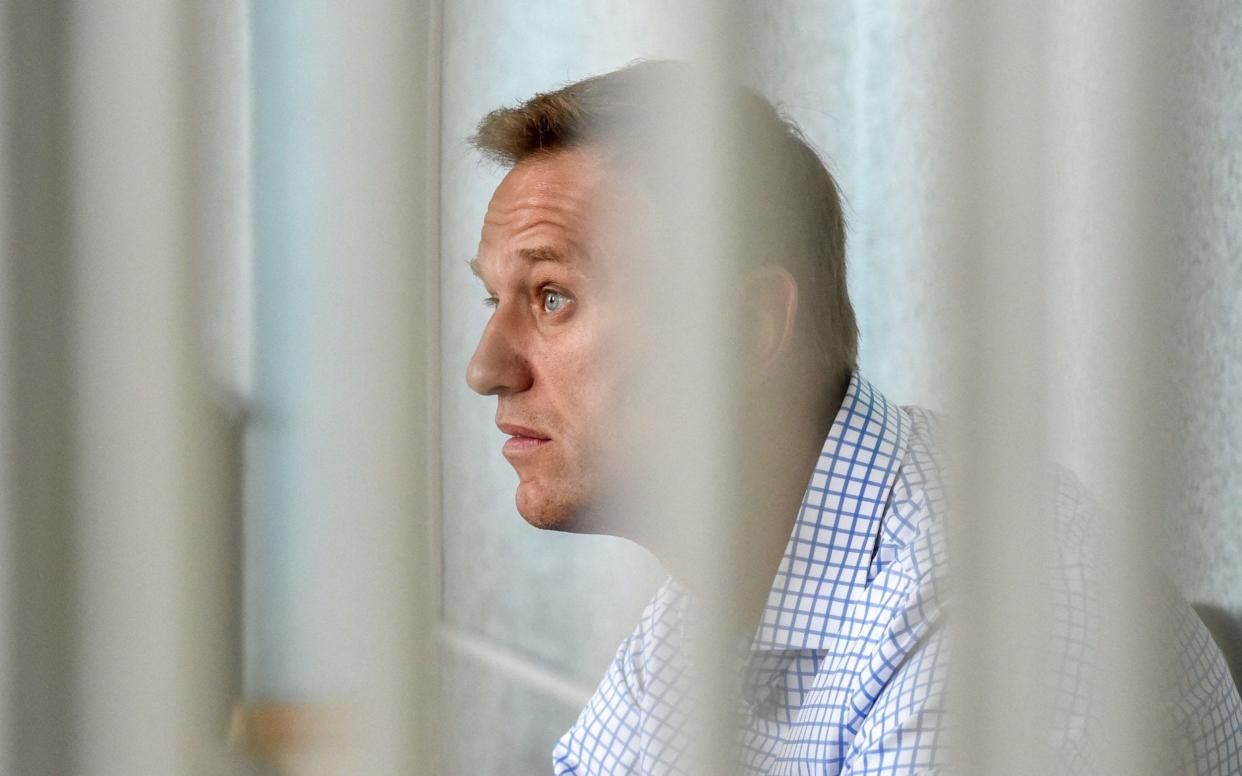Alexei Navalny moved to prison hospital after huge outcry during hunger strike

Alexei Navalny, the jailed Russian opposition leader, has been transferred to a prison hospital, Russian prison authorities said on Monday, amid growing fears for his life.
Several doctors who were able to see his latest blood tests, including Mr Navalny’s personal physician, warned at the weekend that the politician was in critical condition because of “catastrophically high” potassium levels that might lead to heart failure.
The doctors arrived at the prison in which Mr Navalny is being kept on Sunday but were not allowed in.
Mr Navalny’s allies and family - including his mother, wife and teenage daughter - took to social media over the weekend to plead the Kremlin to let a civilian doctor examine him.
Local prison authorities said in a statement on Monday that Mr Navalny’s condition was “satisfactory” and that he had been taken to a hospital ward in another prison.
Mr Navalny’s family and team raised the alarm about his health last month when the Kremlin’s most outspoken critic went on hunger strike to protest the prison administration’s refusal to let him see a civilian doctor following pains in his back and legs.
The prison authorities said on Monday that he has now agreed to take vitamins.
A lawyer who was able to see Mr Navalny on Monday evening said that the politician looked much thinner than before and that he was told he would not be allowed to see a civilian doctor.
He has no plans to end his hunger strike, Mr Navalny’s team said.
Mr Navalny’s allies on Monday voiced concerns about the medical facility at the prison where he had been transferred to, pointing to recent media reports about mistreatment and even torture in the medical ward which mainly deals with tuberculosis patients.
Ivan Zhdanov from Mr Navalny’s team said on Monday that the official statement did nothing to assuage their worst fears.
His transfer to a separate institution “only means that Navalny’s condition has worsened so much that even a torture farm has acknowledged it," he said.
A lawyer on Monday afternoon arrived at the other prison where the Russian politician is kept in a hospital ward but he has not been allowed to see him yet.
EU figures have been vocal about the issue, with the bloc's foreign ministers releasing a joint statement warning of the risks to Mr Navalny's life on Sunday and meeting to discuss the issue further later on Monday.
"We make the Russian authorities responsible for the health situation of Mr Navalny," Josep Borrell said ahead of a video conference of the EU's 27 foreign ministers.
"Act now, or the blood of Mr Navalny will forever be on your hands," said Manfred Weber, who leads the European Parliament's biggest grouping, the European People's Party.
Mr Navalny’s allies over the weekend called on his supporters to take to the streets on Wednesday, the day that President Vladimir Putin is scheduled to give his annual state of the nation address, to urge the Kremlin to free the opposition leader.
The Russian interior ministry on Monday issued a stern warning to potential protesters, reminding citizens of the ban on large gatherings due to the coronavirus pandemic and mentioning possible “provocations” by unnamed individuals.
Mr Navalny, who rose to prominence a decade ago thanks to investigations into official corruption, was arrested upon arrival in Russia in January, four months after he was poisoned in Russia and evacuated to Germany for treatment.
Several independent European laboratories confirmed that he was poisoned with the Novichok nerve agent that was used on former Russian spy Sergei Skripal and his daughter in the 2018 Salisbury attack.
While convalescing in Germany, Mr Navalny helped an independent forensic investigative team investigate his own attempted murder, implicating Russian intelligence officers in the near-fatal attack.
The Kremlin has denied any involvement.
Several dozen writers, actors and journalists such as J.K. Rowling and Stephen Fry have signed an open letter, urging the Kremlin to let Mr Navalny be examined by a civilian doctor.
Dmitry Peskov, the Kremlin spokesman, said on Monday that President Putin has been briefed about the letter but he does not think that it should be “the reason for the president to act in any way.”
He said Russia’s penitentiary service is following the rules while dealing with Mr Navanly.

 Yahoo News
Yahoo News 
